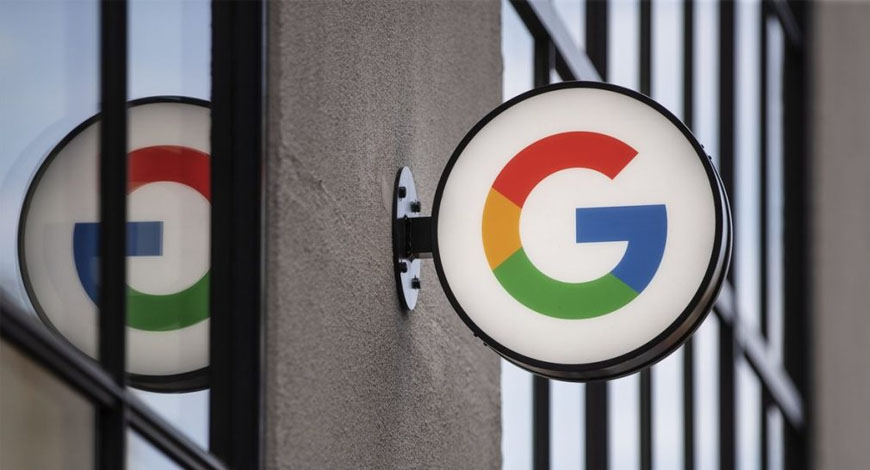The US Supreme Court is poised to pay attention a case that would spell risk for the net`s maximum beneficial commercial enterprise: on-line marketing and marketing. The case, Gonzalez v. Google, may be argued Tuesday and facilities on whether or not net agencies are answerable for the content material their algorithms suggest to customers. The tech enterprise says it is covered via way of means of a felony defend contained in communications regulation called Section 230.
Much of the dialogue surrounding the case has targeted at the charges to on-line agencies if the courtroom docket determines they’re legally accountable for the loads of tens of thousands and thousands of comments, films and different content material published via way of means of customers each day. However, any such selection may also strike on the coronary heart of the automatic marketing and marketing upon which Meta Platforms Inc.’s Facebook and Alphabet Inc.’s Google depend for the majority in their sales.
In fact, the social media agencies view the case as an existential threat. “This case should adversely effect the whole marketing and marketing ecosystem,” stated Marc Beckman, Chief Executive Officer of DMA United, an marketing and marketing corporation that often makes use of Google and Facebook’s gear to serve focused commercials to ability clients round the sector.
Google is being sued via way of means of the own circle of relatives of Nohemi Gonzalez, a 23-year-antique US citizen who become amongst at the least one hundred thirty humans killed in coordinated assaults via way of means of the Islamic State in Paris in November 2015. The own circle of relatives argues that Google’s YouTube have to be held accountable for computerized hints of Islamic State films.
Websites and advert networks mechanically goal commercials primarily based totally on facts they’ve accrued approximately customers, which includes their location, surfing history, subjects they observe intently and more. The commercials are published to web sites via way of means of on-line gear with out human intervention.
Google declined to remark approximately the case. But in its Supreme Court brief, it stated it’s far involved approximately the case’s effect at the economy, which includes advertisers. Meta believes that Section 230 shields the corporation from legal responsibility for all content material from 0.33 parties, which includes commercials, and the social media large is concerned that the courtroom docket should weaken the ones protections, a Meta spokesperson confirmed.
A large ruling via way of means of the Supreme Court should correctly snuff out the commercial enterprise of serving personalised commercials at the net and flip on-line advert practices again to the early 90s, specialists say. It may also pressure the structures to litigate a wave of court cases over the tens of thousands and thousands of classified ads they goal at customers, ensuing in exponential felony charges for smaller advert networks and exchanges.
“If we are now no longer concentrated on commercials, we are going again to the antique ’90s version of `see who bites,’” stated Jess Miers, felony advocacy recommend with tech-funded institution Chamber of Progress. Miers formerly labored for Google.
Together, Google and Facebook seize nearly 50% of all virtual marketing and marketing sales worldwide. The agencies, that have been known as the “duopoly” of on-line marketing and marketing, accumulate reams of facts approximately their customers for you to serve them applicable commercials – a commercial enterprise that mints each agencies billions of greenbacks in keeping with year. Globally, Google made $168 billion in advert sales in 2022 at the same time as Meta made $112 billion, in step with facts analytics corporation Insider Intelligence. This year, Google’s US sales on my own is projected to attain $73.eight billion, at the same time as Meta’s is anticipated to attain $fifty one billion. A ruling via way of means of the excessive courtroom docket could handiest observe to the US, however it’d be technically tough for the agencies to address marketing and marketing in another way in its biggest marketplace than different international locations round the sector.
The agencies are already going through felony demanding situations over the commercials they serve, mainly those who relate to touchy troubles like healthcare, politics, employment possibilities and more. With few exceptions, Facebook and Google efficaciously win dismissals of maximum instances that might keep them responsible, way to Section 230.
That should extrade fast if the Supreme Court makes a decision to slim Section 230. While the defend protects agencies from court cases over content material generated via way of means of regular humans, Cathy Gellis, a California attorney who has represented tech agencies in on-line speech instances, stated commercials may be labeled as “user-generated content material” if the Supreme Court’s ruling is wide-ranging.
The virtual marketing and marketing enterprise is already coming below hearthplace as governments round the sector crack down, arguing that agencies accumulate an excessive amount of facts approximately humans with out their consent and violate their privateness. Privacy guidelines in international locations which includes the European Union proscribing the quantity of facts agencies are allowed to accumulate on customers have already positioned a big stress at the virtual commercials ecosystem, stated Beckman.
“We are already, as an agency, enforcing new advertising projects to now no longer simply fight what we suppose will manifest if 230 is limited, however additionally withinside the face of those new 0.33 birthday birthday celebration facts privateness restrictions,” Beckman stated. He stated the technology of “beautiful” and extraordinary marketing and marketing can be on its manner again as advertisers can not rely upon the hyper-personalised and reasonably-priced advert networks they have got emerge as accustomed to. While focused marketing and marketing allowed companies to attain their supposed audiences with little effort, a pivot farfar from algorithmic hints should require advertisers to paintings tougher to seize attention.
Miers stated it is possibly that Google and Facebook will face the brunt of court cases the courtroom docket weakens Section 230. But smaller advert groups and advert networks will face “trickle-down” effects.
Online marketing and marketing is so key to Meta and Google’s commercial enterprise models, it is possibly they could try and combat it out in courtroom docket, stated Gellis, the California attorney. They could try and deal with the felony charges and notice if they may win instances at the merits. “Everybody’s going to try and clutter via as exceptional they can,” Gellis stated.
To a few critics of the tech companies, a wind down of concentrated on marketing and marketing at the net should advantage a number of the net`s maximum prone users. Children’s advocacy institution Common Sense Media and Facebook whistleblower Frances Haugen in a Supreme Court quick argued that Google’s video and advert pointers can create a “remarks loop” that steers kids and young adults down rabbit holes that may revolve round consuming disorders, self damage and extremism. In their view, Google and Facebook have to higher manipulate the commercials that it serves to younger audiences.
The case can be a “surprise to a number of businesses,” stated Eric Goldman, a regulation professor at Santa Clara University School. “So plenty of marketing and marketing is now being brought in a dynamic way,” Goldman stated. “If that dynamic evaluation is an algorithmic advice that disqualifies the advert community for 230 protections, then the advert enterprise has to do some thing different.”

